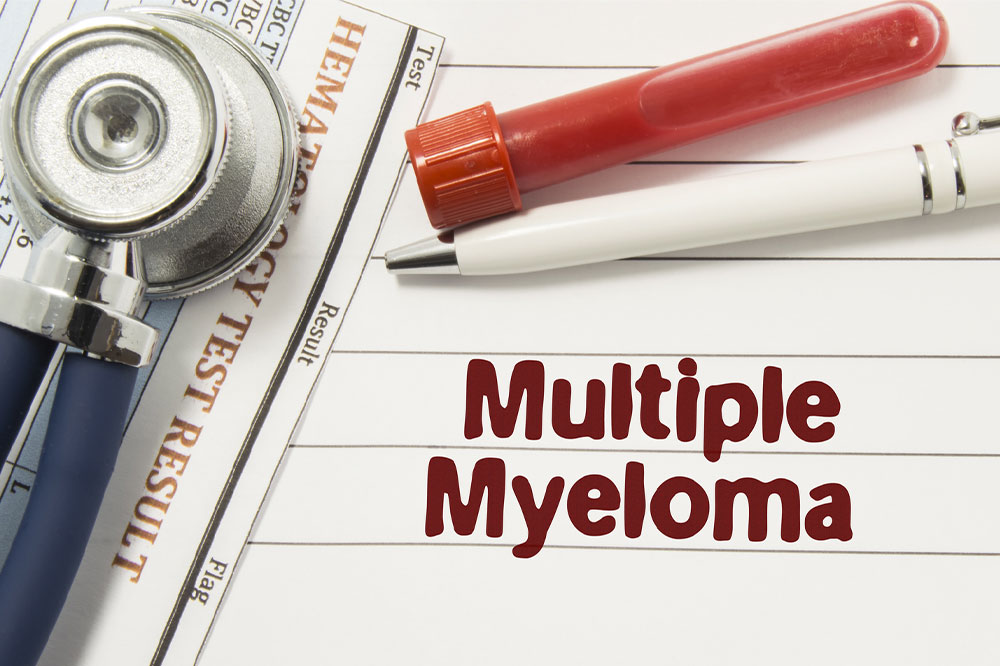Never Ignore These 7 Signs of Multiple Myeloma

A person’s bone marrow consists of plasma cells, a vital component of the immune system. However, certain factors may result in plasma cells multiplying out of control. Such a condition is known as multiple myeloma or the cancer of plasma cells. Although there is no cure for this condition, early diagnosis and treatment can reduce the severity of its symptoms. Here are some of the signs of multiple myeloma to look out for:
Bone pain
In multiple myeloma, cancerous cells grow aggressively in the cortical bone and bone marrow. This results in a general thinning or deep-rooted damage of one’s bones, a condition that is medically known as osteoporosis. As a result, bone pain, especially in the spine and chest, is one of the main signs of multiple myeloma to look out for.
In this condition, a person’s bones are likely to become progressively weaker before breaking. Generally, the person may feel the first sensation of pain in their back or ribs. Later, a person may feel acute pain while doing any simple movements.
Fatigue
Fatigue is a common sign of most cancer types, and multiple myeloma is no different. People with this condition frequently feel exhausted for no apparent reason. More importantly, they cannot alleviate this tiredness by resting or consuming fluids. However, if someone with multiple myeloma is undergoing radiotherapy or chemotherapy, they are likely to experience extreme tiredness after therapy sessions.
Usually, this fatigue is mainly driven by kidney ailments, immunosuppression, and anemia, all advanced symptoms of multiple myeloma.
Kidney failure
As implied earlier, kidney ailments are one of the signs of multiple myeloma. Up to 40 percent of people with this condition suffer some amount of kidney damage or failure. The parts of the kidney affected generally tend to be the tubules, interstitium, and glomerulus. Healthcare experts can diagnose kidney damage through extensive blood and urine tests.
The initial treatment of myeloma-based kidney damage involves assessing how much renal impairment has occurred and then addressing issues with a person’s hemodynamics, electrolyte disturbances, and volume status. Kidney damage is caused because people with multiple myeloma have an excess of M protein in their blood. The damage can be detected when people show symptoms like fatigue, itching, shortness of breath, nausea, muscle cramps, a loss of appetite, insomnia, changes in urine color, anemia, and swelling of ankles, feet, or legs.
If people experience such a wide range of symptoms, they need to visit their local healthcare expert immediately.
Frequent instances of fever
As this condition affects a person’s plasma cells, it tends to affect their overall immune strength severely. People with multiple myeloma have weakened immunity, which is why they are vulnerable to a host of bacterial infections. These infections cause them to develop fever compared to others frequently. While fever is common in people with multiple myeloma, tumor-related fever is rare. As per a 2022 study, only 8 in 869 people with this condition were found to have a fever caused by malignancy itself.
Therefore, any signs of infection involving a body temperature of 100.5°F or higher with flu-like symptoms is a massive red flag for multiple myeloma. Fever and other bacterial infections, especially in the lungs or the upper respiratory tract, result from the immunity damage multiple myeloma has caused.
Nausea and loss of appetite
Multiple myeloma triggers a condition known as hypercalcemia, an excessive amount of calcium in the blood caused mainly due to bone breakdown. Hypercalcemia causes issues like blood chemical imbalances, drowsiness, and constipation. Nausea is another direct result of abnormally high blood calcium levels.
Generally, nausea and frequent vomiting cause people to lose their appetite. Also, with all the pain and discomfort that comes with multiple myeloma, food does not seem very appealing to people living with this health condition. Anemia and fatigue also play their part in drastically lessening a person’s willingness to eat.
Apart from these factors, people who undergo treatments such as chemotherapy experience nauseous and soreness in the mouth. This makes the prospect of eating less attractive to such individuals.
Finally, mental health also plays a part in impacting one’s appetite. Depression and anxiety, two conditions known to reduce patients’ appetite, are common symptoms of this condition.
Confusion or mental fogginess
Anemia and fatigue trigger mental fogginess, a sensation in which the thoughts and ideas of people are constantly clouded. The high levels of calcium in a person’s blood, caused by multiple myeloma, also cause confusion and brain fog.
Another one of the seven signs of multiple myeloma is neuropathy, also known as nerve damage. Nerve damage affects an individual’s ability to think and understand things clearly. Other effects of neuropathy include difficulty concentrating, cognitive impairment, and confusion.
Unnatural blood clotting
Multiple myeloma can also cause thrombosis, a health condition involving undesirable blood clotting, in individuals. Generally, the blood of individuals with this condition shows hypercoagulability or an enhanced tendency to clot within their veins and arteries. For example, deep vein thrombosis (DVT), a health condition in which a person’s deep veins are blocked due to hypercoagulation, is also a common indicator of multiple myeloma.
As stated earlier, anemia and fatigue are essential indicators of multiple myeloma. People with this condition do not have the inclination or energy to engage in physical activity or exercise. A lack of physical activity in people directly causes DVT.
Also, frequent bouts of vomiting and nausea tend to cause dehydration in people with multiple myeloma. To cover up the loss of body fluids, people with this condition tend to drink excessive amounts of water. This increased intake of fluids plays a part in increasing the risk of blood clots in such individuals.
If one experiences clots, they need to visit their local healthcare expert and get a blood test, as it is one of the seven signs of multiple myeloma.